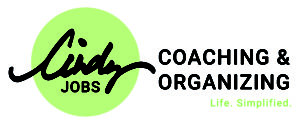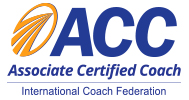How often do you experience an emotion or situation and do everything within your power to ignore its effect on you? If you are like me, this happens pretty regularly.
Well, the truth is, it is nearly impossible to ignore the effects of our emotions and life situations. The more attention we give to trying to ignore something, the more focus we offer it. A bit counter-intuitive, right? That’s not at all what we intended.
But sometimes we find ourselves spiraling over things, don’t we? When this happens to me, my go-to is to ask myself this question:
What is the most appropriate response to the emotion or situation: acknowledge or empower?
What’s the difference? The amount of influence we let the emotion or situation have upon us.
Acknowledge: to accept the truth or recognize the existence of something.
Empower: to promote the self-actualization or influence of
How does this differentiation come into play?
Input from others:
It’s hard to ignore. It comes at us every day from every angle. Some is warranted, and some is not. Some is received from people we respect, and some is not. Empower input from those we respect; acknowledge the rest.
Life circumstances:
More than likely, we will all get stuck in traffic at one time or another. Acknowledge the circumstance as frustrating, but don’t empower it to ruin your entire day.
Emotions:
A couple of years ago I failed a certification I’d worked hard to achieve. I completely fell apart for a few days. I was sad, mad, and angry. And I mean REALLY sad, mad, and angry. I wanted to quit. I told myself not to bother trying; I just wasn’t good enough. Deep-down I knew my reaction was not equivalent to the situation. I had to step back and acknowledge that the emotions were warranted, but the level of empowerment I’d given was not warranted. (Side note: I passed the certification a few months later.)
What can you do to draw the line between acknowledging and empowering? How much happier and healthier could you be if you didn’t give emotions and situations more power than they deserved?
Cindy Jobs, COC, ACC
Looking for more information?
Click here for 15-minute organizing tips.
Click here to schedule a complimentary breakthrough session.
For more helpful information, follow me on Facebook.



Attention Deficit Disorder Association
National Association of Productivity & Organizing Professionals, Seattle Chapter Vice-President
International Coach Federation
Institute for Challenging Disorganization
Level I Certificates earned in Chronic Disorganization; ADD; Client Administration; Time Management; Mental Health; and Hoarding.
Level II Specialist Certificates earned in Chronic Disorganization and ADHD.







